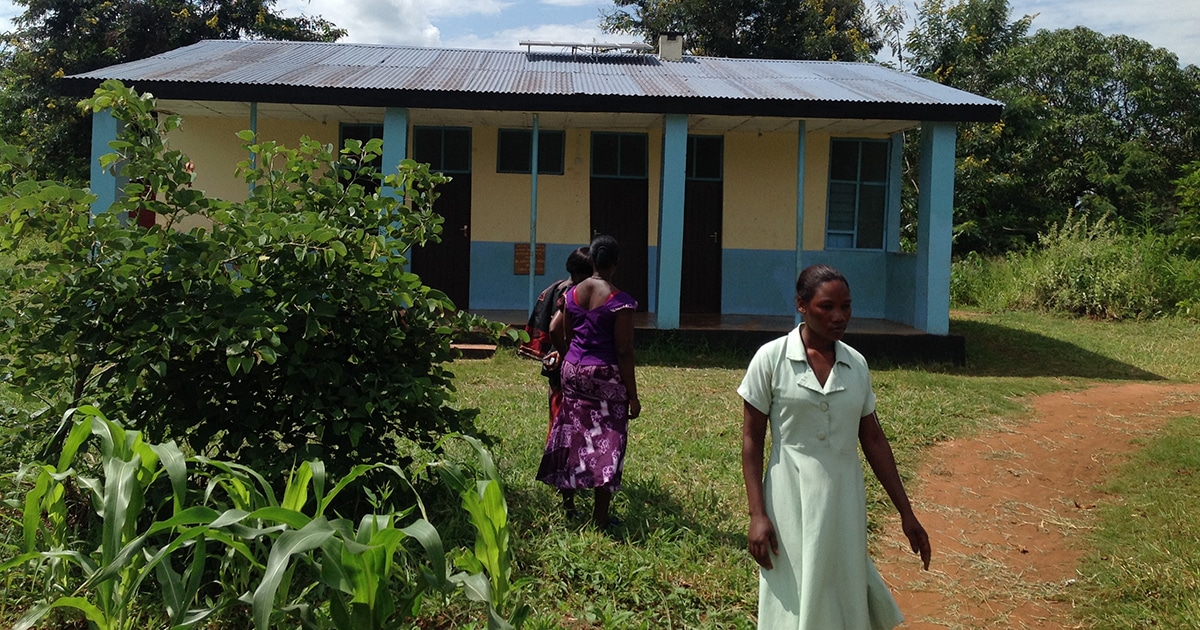Electricity is one of the cornerstones of development—a key part of the infrastructure that enables poverty reduction and the provision of vital services such as health care.
In many rural areas of Tanzania, conventional sources of electricity delivered through the national grid are prohibitively expensive and will not be available for years or decades to come. Competing responsibilities often prevent the central government from addressing community needs.
As a result, most rural villages have weak health systems, characterized by inadequate governmental capacity to provide electricity in facilities or to recruit and train qualified staff. Meanwhile, the inadequate supplies in medical dispensaries and clinics adversely affect the quality of health services and care, for pregnant women in particular.
In response, faith-based organizations have stepped in to fill the void. The Anglican diocese of Masasi is actively involved in rural health and community-based development programs. Concerned with the lack of reliable access to electricity in health facilities, it has partnered with the Primate’s World Relief and Development Fund (PWRDF) to develop a novel response: solar power.
By making a donation through the 2015 Gifts for Mission gift guide, Canadian Anglicans can help provide solar electricity to health facilities in rural Tanzania. A $1,000 gift provides the funding to install solar panels on a health clinic, covering the cost of installing the panels and batteries to provide electricity in all the rooms, refrigerating drugs and vaccines and improving maternal and newborn health.
“The solar power installation generally establishes the best practice in quality health service delivery, as it helps the doctors/clinical officers and midwifery nurses to effectively and efficiently assist pregnant women to deliver in a safe and conducive environment, especially at night,” diocesan development officer Geoffrey Patrick Monjesa said.
Since the beginning of the partnership between the diocese of Masasi and the PWRDF almost four years ago, solar panels have been installed in 15 rural clinics, providing a cost-effective source of electricity sufficient to serve the needs of the community.
Monjesa said that the availability of electric power has increased the working morale of health staff, facilitated the availability of vaccines that help alleviate preventable diseases (particularly among children under five years old), and created a conducive working environment that has encouraged skilled health care providers to work in rural health facilities.
The life-saving benefits to people in rural Tanzania—especially mothers, newborns and young children—are evident in the numbers.
Since the diocese of Masasi and PWRDF began installing the solar panels in 2013, the rates of children who die at birth have decreased from 112 per thousand to 71. Conversely, the number of children being vaccinated has increased from a baseline of 40 per cent to 90 per cent today, due to the capacity of dispensaries to store the drugs.
“In the past, the supply was not reliable because it had to come from a place the same day, and sometimes the mother would not be there, etc.,” PWRDF development partnership program director Zaida Bastos said.
“But now, because it’s there, when they bring the children [in] for the monitoring, the children can be vaccinated.”
The ability to offer 24-hour health services and deliver babies at night has similarly reduced the mortality for pregnant women and newborns. In the past, pregnant women were often compelled to deliver their babies at home at the risk of suffering fatal hemorrhages.
“Now they can go to the centre and because there is electricity, the midwife can provide the appropriate services,” Bastos said.
By making a donation through Gifts for Mission to install solar panels, donors can provide access to health services to thousands of people in villages where it would not otherwise have been available.
“If you are part of that story,” Bastos said, “it’s a wonderful story to be part of.”
Interested in keeping up-to-date on news, opinion, events and resources from the Anglican Church of Canada? Sign up for our email alerts .

